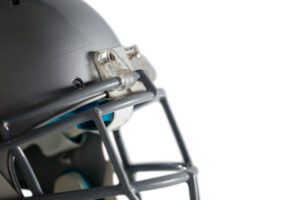Florida Traumatic Brain Injury Lawsuits

A traumatic brain injury (TBI) is defined as any kind of brain dysfunction caused by an external force, according to the Mayo Clinic. While it is very common for people to self-inflict TBIs accidentally, it is also depressingly common for TBIs to result from another person’s negligence. If you or a loved one has been through such a situation, you may be able to bring suit and be awarded compensation, to help cover your medical bills and any lifestyle changes the injury may force your family to make.
The Facts
TBIs are classified into two groups, severe and mild, but this nomenclature is actually somewhat inaccurate – it implies that there is ever a brain injury that can be called ‘mild,’ which can lead some to delay seeking medical treatment. They are measured by how much trauma they cause, rather than by any other metric – a fender bender and a fist fight can cause the same level of brain dysfunction, though one will appear much worse than the other.
It is also worth noting that TBIs need not be caused by a direct blow to the head. For example, a 2013 study by Kornel & Freeman, published in Brain Injury, showed a significant link between traumatic brain injuries and certain whiplash cases – approximately 24 percent. Whiplash is a soft tissue injury, rather than a blunt force trauma, but given the force with which the brain is often pushed against the skull wall, it is not incomprehensible that such a result would occur. Be advised, however, that if a TBI is caused by anything other than the traditional blunt force trauma, it can be difficult to convince a jury that that was indeed the cause.
Persistent Myths Abound
TBI-related lawsuits are possible to win, as long as the four criteria for a negligence case are sufficiently established. Those criteria are: (1) showing the existence of a duty of care owed by the defendant to the plaintiff; (2) a breach of that duty; (3) a showing that the defendant’s conduct was the direct cause of plaintiff’s injuries; and (4) proof that the plaintiff suffered tangible harm (not necessarily physical, but more long-lasting than shock or cuts and bruises). Medical records and expert testimony may assist in establishing the burden of proof.
Despite the legal requirements being reasonably straightforward, a jury sometimes will not award the verdict that you may be looking for, and that is often because popular culture has taught that certain signs must be present for the plaintiff to have “truly” suffered a traumatic brain injury. For example, the average layperson may believe that a “mild” TBI is not consequential enough to merit compensation, and that the person can recover quickly. In truth, a severe or untreated TBI can cause very long recovery times, from months to years. In some cases, recovery time may be so long that the statute of limitations, which is four years for negligence actions, may be implicated.
Contact An Orlando TBI Attorney
Brain injuries can run the proverbial gamut, and so can the cases mounted to obtain compensation for them. If you are in need of a knowledgeable Orlando traumatic brain injury lawyer, the Hornsby Law Group is happy to try and assist you. Contact us today to set up an initial consultation.
Resource:
tandfonline.com/doi/full/10.3109/02699052.2010.490512